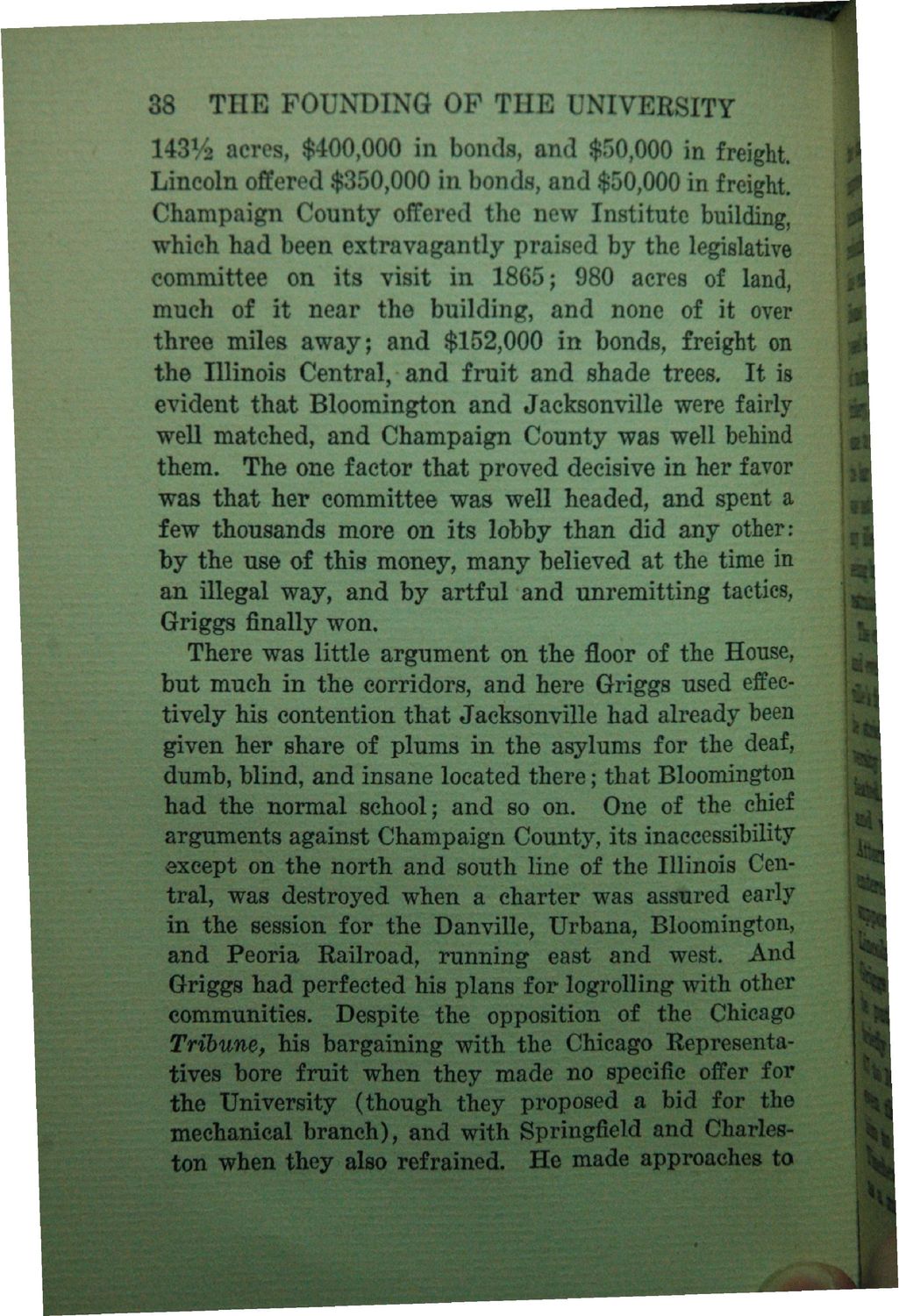| |
| |
Caption: Book - History of the University (Nevins)
This is a reduced-resolution page image for fast online browsing.

EXTRACTED TEXT FROM PAGE:
38 THE FOUNDING OP THE UNIVERSITY 143% acres, $400,000 in bonds, and $50,000 in freight. Lincoln offered $350,000 in bonds, and $50,000 in freight. Champaign Connty offered the new Institute building, which had been extravagantly praised by the legislative committee on its visit in 1865; 980 acres of land, much of it near the building, and none of it over three miles away; and $152,000 in bonds, freight on the Illinois Central, and fruit and shade trees. It is evident that Bloomington and Jacksonville were fairly well matched, and Champaign County was well behind them. The one factor that proved decisive in her favor was that her committee was well headed, and spent a few thousands more on its lobby than did any other: by the use of this money, many believed at the time in an illegal way, and by artful and unremitting tactics, Griggs finally won. There was little argument on the floor of the House, but much in the corridors, and here Griggs used effectively his contention that Jacksonville had already been given her share of plums in the asylums for the deaf, dumb, blind, and insane located there; that Bloomington had the normal school; and so on. One of the chief arguments against Champaign County, its inaccessibility except on the north and south line of the Illinois Central, was destroyed when a charter was assured early in the session for the Danville, Urbana, Bloomington, and Peoria Railroad, running east and west. And Griggs had perfected his plans for logrolling with other communities. Despite the opposition of the Chicago Tribune, his bargaining with the Chicago Representatives bore fruit when they made no specific offer for the University (though they proposed a bid for the mechanical branch), and with Springfield and Charleston when they also refrained. He made approaches to
| |